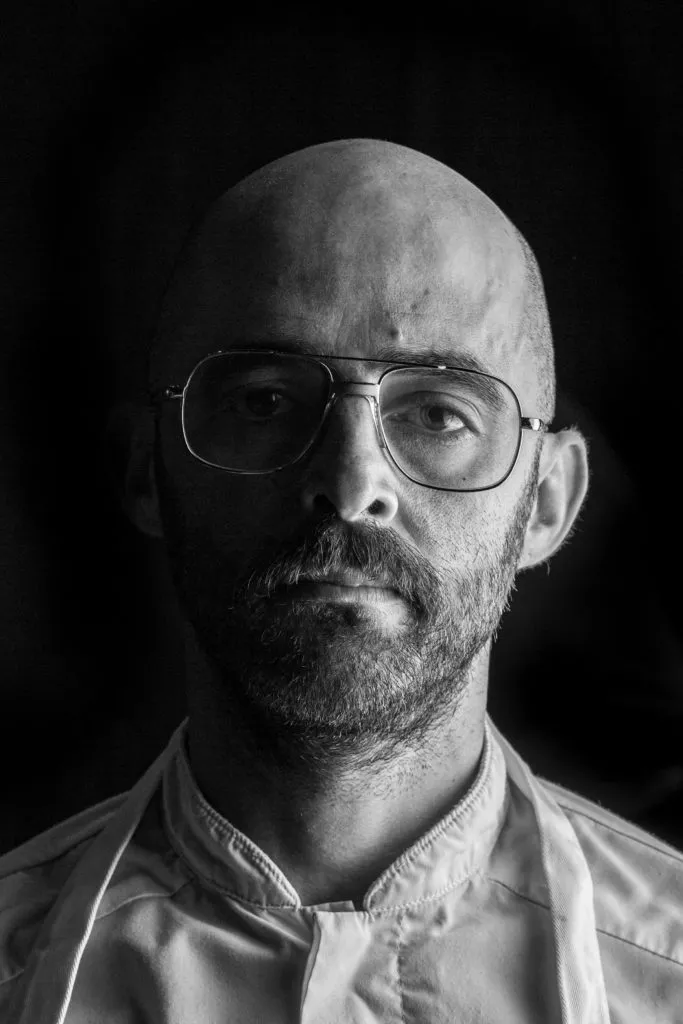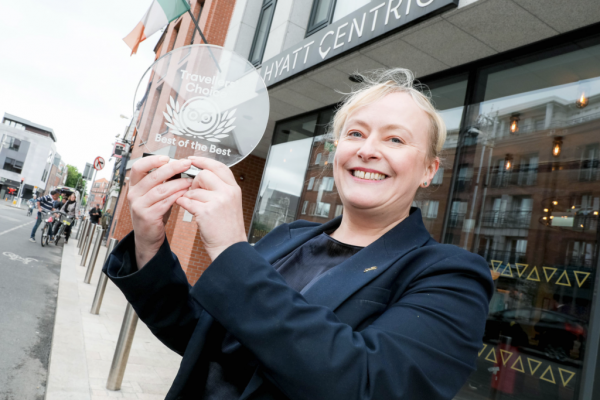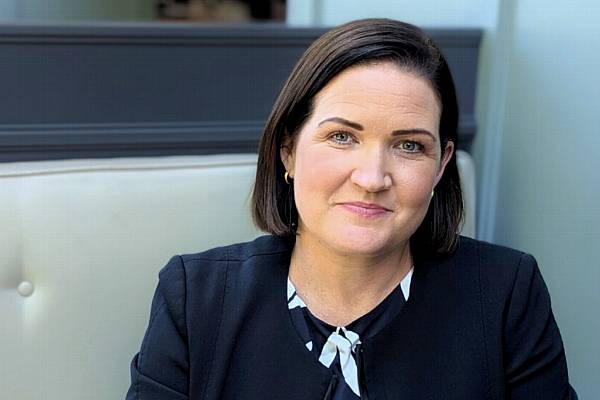The Burnt Chef Project is a non-profit, social-enterprise set-up, run to raise awareness for mental-health issues within hospitality. We talk to founder Kris Hall about what drove him to create this fine initiative.
This article was originally published in the Spring 2021 issue of Hospitality Ireland Magazine, in April of 2021.
Hospitality is a high-pressure job, with a correspondingly high ‘casualty rate’ when it comes to issues of burnout and mental health. Kris Hall spent years watching his close friends suffer from the ill effects of working within hospitality, without feeling confident to discuss the subject of mental health. In May 2019, he set up the Burnt Chef Project in response.
Why do we need to raise awareness of mental health?
“It is reported that one in four people will experience a period of poor mental health within their lifetime. We have completed studies recently that show that within hospitality, the numbers are more like four out of five, due to the stress and pressures that working within this industry can cause.”
What brought him to start the Burnt Chef Project?
“I’ve been working within the hospitality industry for around nine years, from a wholesale perspective, and have seen firsthand the struggles of mental-health issues, with both colleagues and friends. Long, antisocial hours, tough environmental conditions, and consistently high pressures to perform are just some of the things that professionals within this sector are dealing with on a daily basis. Years of these conditions provide a hotbed of psychological and psychosocial issues, such as high stress levels, anxiety, depression, alcohol and drug abuse – not to mention the impact that the working hours and conditions have on personal relationships with friends and families.”
There is also, Hall points out, “a strong stigma within the hospitality trade. The term ‘badge of honour’ is often used and refers to an individual who will suffer in silence at personal cost over letting the team down, or to save being singled out. We want to turn that on its head and redefine the term. Every person within hospitality should be able to discuss the state of their mental health and gain support from their peers and employers. It is important that, although mental health can’t be seen, it is regularly discussed and policies reviewed. Those that speak out against the stigma should be the industry’s new definition of ‘badge of honour’.”
Does he think the stigma on mental health in foodservice compares unfavourably with other industries?
“In 2017, the NHS reported that one in four people in the UK are likely to suffer ill mental health in their lifetime, however, a study of almost 1,300 hospitality professionals carried out by the Burnt Chef Project has found this is nearer to four in five people.
“Hospitality, as an industry, can involve long, antisocial hours, and often little to no access to natural light – a work-hard-play-hard culture, and perhaps less rigid or informed policies on workplace adjustments when it comes to mitigating the risks of high-stress environments. Could you imagine a lawyer or telesales operative starting work at 6am, after three hours’ sleep, then working a 12- to 16-hour shift in hot, dark environments before repeating the process?”
Hall’s figures relate to the UK, but Ireland is likely to be similar. There is also, he points out, work pressure related to the shortage of skilled personnel.
“It’s always been a tough environment to work in, but we’re beginning to see fewer people turn to hospitality as a viable career path,” he says. “UKHospitality had reported that the industry was in a year-on-year growth trend of 3.9% before COVID-19, yet, despite this, we have found that only 35% of our survey respondents would recommend working in hospitality. It is no secret: there is an increase in staff shortages, as workers look to balance their work-life commitments equally and adopt freelance working or leave the industry as a way of achieving this. This further compounds the pressure and increases stress levels, as a result of the gaps left by those who have chosen to find a better work-life balance.”
Does he think the role of management within hospitality needs to change?
“Management need to be focusing on upskilling their staff, so that they can better manage their time and are more resilient when faced with busier periods. You wouldn’t ask someone to run a marathon without training, so why should we be expecting staff to walk straight into long services without a similar long-term strategy?”
In what actions is the Burnt Chef Project engaging to avoid mental-health issues and improve the situation in UK foodservice?
“The Burnt Chef Project is working with thousands of individuals across the UK to open up conversation and bring more awareness to the fact that poor mental health and a lack of mental hygiene is further contributing to the pressures felt in the industry. Our existence drives conversations within workplaces, and the profits made from the sales of branded merchandise from our website go towards paying for mental-health awareness training and management training, so that we can upskill staff across the UK.”
What are his ambitions with the Burnt Chef Project?
“Hospitality employs close to 72 million people worldwide. We have barely scratched the tip of the iceberg with our message, and there is a lot more work that needs to be done, in both improving the saturation of our message and challenging workplace stigma. I’d like to see the Burnt Chef Project become synonymous with leading the charge against workplace mental-health stigma, and that the hospitality industry flourishes and improves as conversations and attitudes on this subject begin to change worldwide.”
Support the Burnt Chef Project by looking at the ‘Ambassadors’ and ‘Supporter Membership’ sections on www.TheBurntChefProject.com, or support the project to continue its work by purchasing merchandise

What can owners/managers do to ensure a healthy working environment?
- Employers can increase their responsibility to ensure there is a zero-tolerance policy towards mental-health stigma in the workplace. They can then begin to actively promote themselves as an ‘employer of choice’ when it comes to the subject of mental health.
- It is essential that management teams undergo training around mental-health awareness or mental-health first aid, in order to improve their confidence in the subject matter, and to engage with and further support their teams.
- Managers could consider adopting anonymous employee wellness surveys with their staff, to check in with the general feeling of the team and actively monitor responses for any notable changes that may require further conversations.

What can chefs or foodservice professionals do?
- Employees have a shared responsibility to lead the charge when it comes to mental health. Senior professionals should feel confident that they can open up conversations about mental health with their peers without fear of stigma or comeback. This, in turn, provides confidence to those who might be struggling with their own mental health.
- It’s important to realise that many employers, as well as the staff, aren’t well versed in the subject of mental health, as it’s been taboo for so long. Staff can provide valuable insight and direction into their own personal experiences, so that employers can make well-informed changes to improve the working environment.

Practical tips for restaurant owners/managers to create a safe environment, where mental health is valued and looked after?
- Distribute hours evenly across teams.
- Adopt a zero-tolerance approach to mental-health stigma.
- Ensure that staff members know their rotas and days off at least one week in advance, giving them time to plan.
- Upskill staff, to ensure even workloads.
- Spend time training staff, to improve the management of their workloads.
- Reduce the number of working days, to mitigate longer hours.
- Offer flexible working hours to those with families and young children.
- Provide regular breaks from the working environment, to reduce fatigue and stress.
- Reduce split shifts to a minimum.
Read More: Hospitality Ireland Spring 2021: Read The Latest Issue Online!








